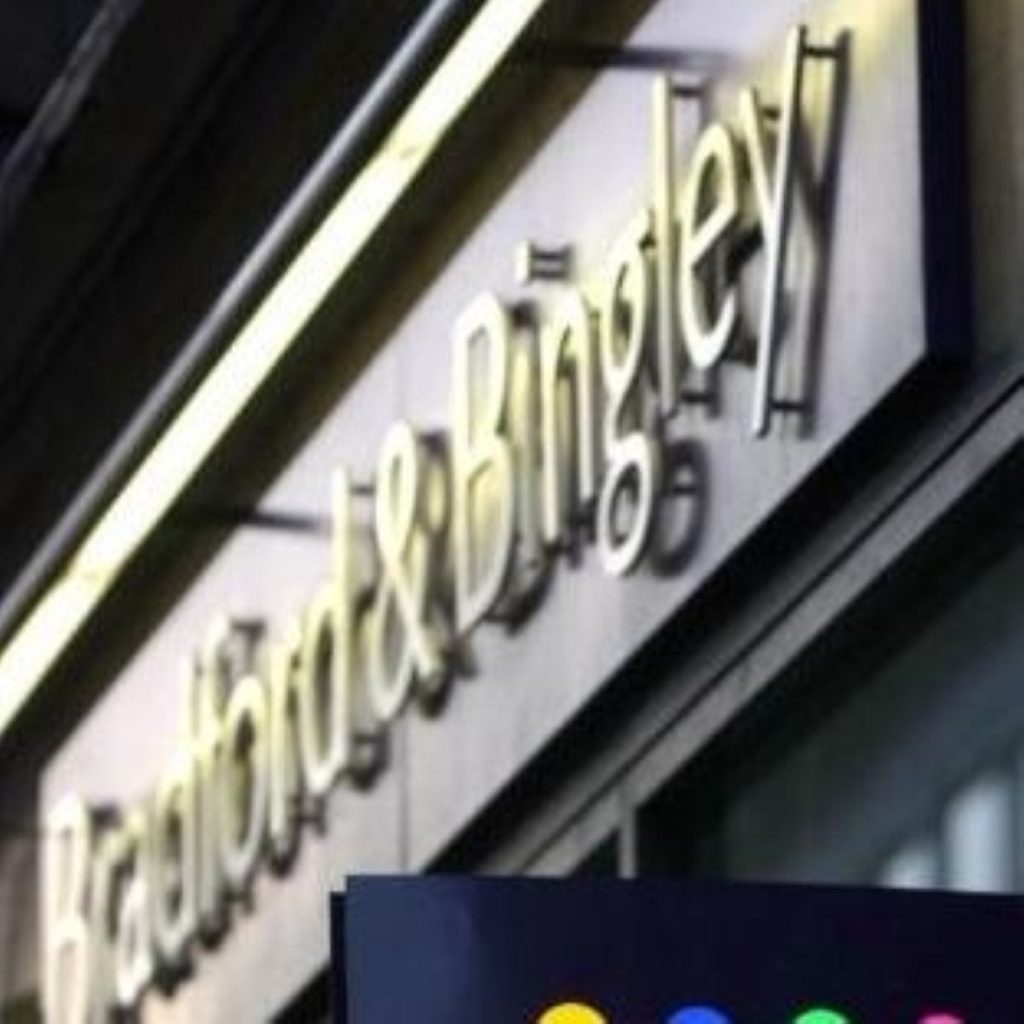Govt nationalises Bradford and Bingley
The government has nationalised Bradford and Bingley’s mortgages, with Spanish giant Santander taking over its savings business.
Chancellor Alistair Darling, explaining the move, said he was not prepared to let the lender fold as the Treasury reassured “business as usual” for B&B’s savers and borrowers.
“To let Bradford and Bingley go down would have destabilised the entire system,” he told the Today programme.
“The government has got to provide stability. You need the government to intervene – to stand firm here to be able to tide over the situation and then come back in relation to the rest of the industry once conditions are stabilised.”


B&B’s 2.7 million savers are being told their £20 billion of cash is safe and B&B’s branches, call centres and internet operations will be open for business as usual to provide continuity of service to customers.
Under the deal, B&B was deemed a failure so depositors’ funds are covered the Financial Services Compensation Scheme (FSCS).
By using the FSCS, the banking sector will be forced to pay for any losses, but the government is lending £20 billion to cover this. If – by the time B&B is wound and sold off completely – there is a shortfall on this £20 billion, banks will be forced to cover the difference.
The upshot of the deal is there is little or no risk for the taxpayer. But shadow chancellor George Osborne, speaking on the same programme, said: “I suspect the arrangements they’ve put together here. the taxpayer is underwriting the whole thing.
“Our principle is clear: you need to protect the taxpayer.”
He argued draft legislation to be debated in parliament in two weeks would have enabled the government to cope with the situation better and criticised Mr Darling for not pushing through the bill quicker.
The chancellor said the “truly extraordinary” situation required quick and decisive action, pointing out his nationalisation powers invoked this week had been passed through the Banking Reform Act passed earlier this year.
Debate continues as economic analysts assess B&B’s failure. Last week it announced it was stepping away from the UK mortgage market, but this was deemed enough to solve its liquidity problems.
Over the weekend the Treasury held an auction for the lender – with no firm ready to take on the whole business, so the taxpayer takes on the mortgage assets and the risk attached to them.
Under the plans, the government is likely to work to run down the B&B £40 billion mortgage book – meaning customers will be told after the end of fixed-rate deals the only offer will be a higher standard variable rate (SVR) or to remortgage elsewhere.
A similar strategy is being maintained by Northern Rock.
This means the state will be left holding the mortgages of customers that other lenders do not want – such as riskier buy-to-let and self-cert mortgages. But any losses would be covered by the rest ofthe banking sector.
Bradford & Bingley on Friday maintained it was in a strong position, with chief executive Richard Pym saying that the bank remained well-capitalised and could deal with its troubles.
However, the capitalisation position of B&B was nto the problem, but its liquidity standing.
In the current second wave of the credit crunch, banks are unwilling to lend to each other amid fears of further losses.
B&B’s own mortgage was heavily focused on buy-to-let mortgages – seen by some as a greater risk in the current housing downturn.
The biggest loser from the deal will be shareholders – with many taking a stake when the firm demutualised from being a building society.
The firm’s share price closed on Friday at 20p, compared with 325.50p a year ago. It is uncertain how much – if any – money shareholders will receive.
B&B was the last demutualised former building society on the market – with others now bought by larger banks or nationalised in the case of Northern Rock.

